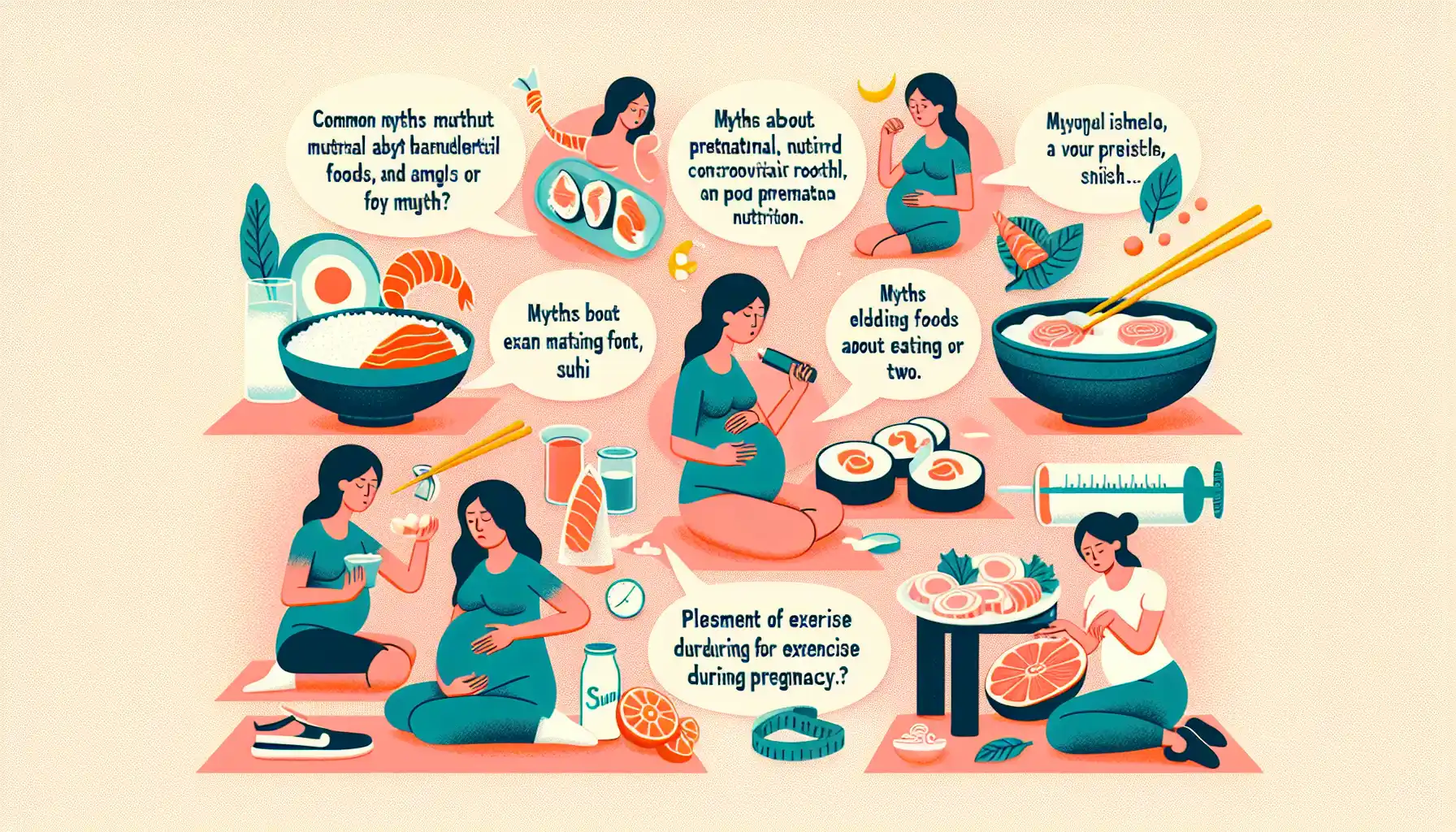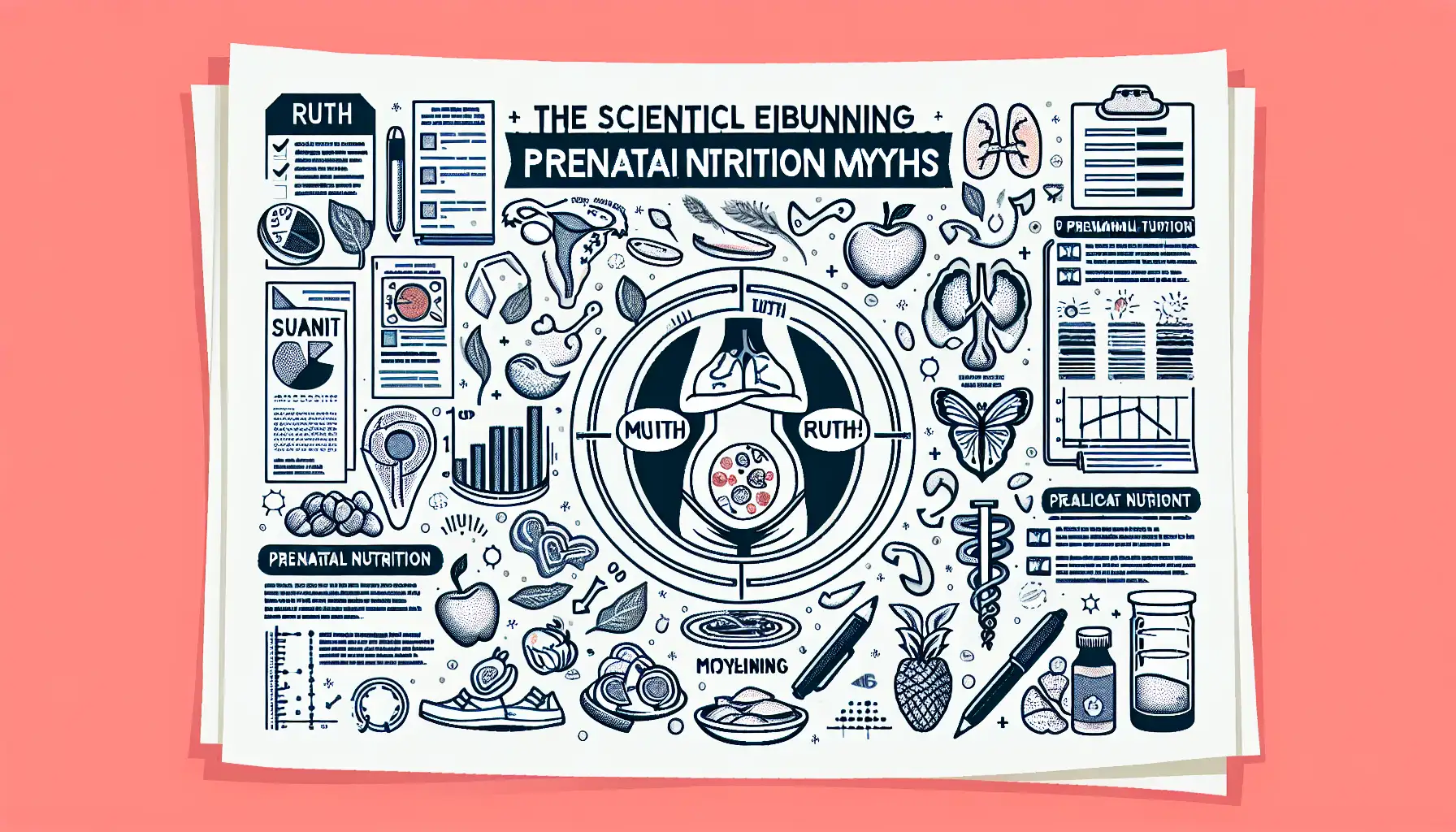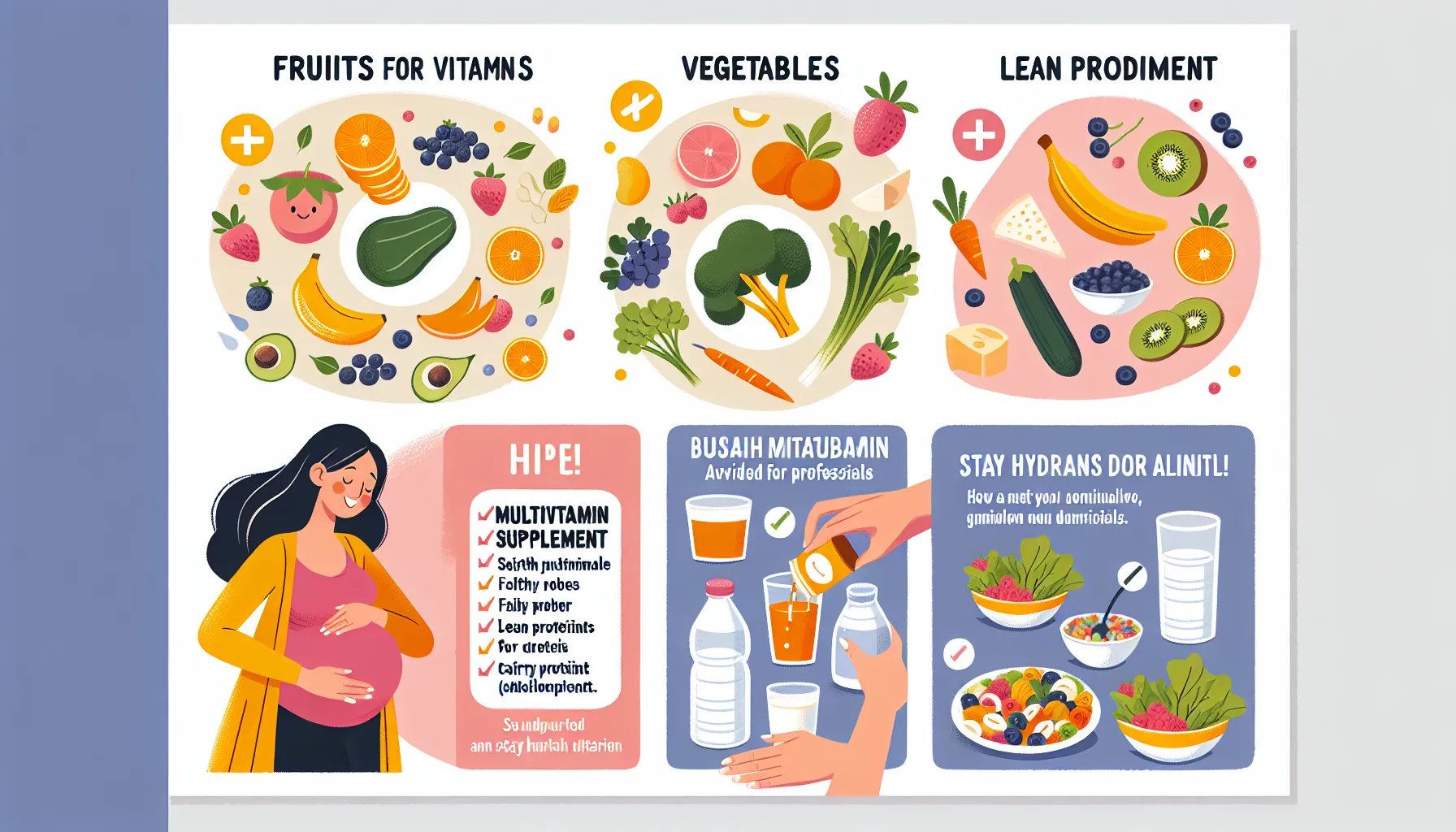Debunking Common Myths About Prenatal Nutrition for Healthier Pregnancies
Understanding the Importance of Prenatal Nutrition
Fueling Tiny Miracles: Why Every Bite Matters
Imagine this: every single meal you eat during pregnancy is like a love letter to your growing baby. It's not just about filling your plate; it’s about fueling a tiny miracle. Your body becomes the ultimate VIP lounge for your little one, and the menu you offer matters more than you might think.
Did you know that some nutrients are like backstage passes for your baby’s development? Here are a few must-haves:
- Folic acid: Think of it as the architect, helping to build a strong neural tube for your baby.
- Iron: The delivery driver, ensuring oxygen gets to where it’s needed most.
- Calcium: The bricklayer, fortifying those tiny bones and teeth.
But don’t stress! This isn’t about perfection. It’s about progress. Even swapping your afternoon chips for a handful of nuts can make a difference. Picture your plate as a rainbow—vibrant, colorful, and full of life. Each color offers its own superpower to your growing baby.
So, next time you’re grocery shopping, remember: every choice you make isn’t just about you—it’s about that little heartbeat depending on you. That’s powerful, isn’t it?
Common Myths About Prenatal Nutrition and Their Origins

Are Cravings Just Indulgence or Something More?
Picture this: you're midway through your pregnancy, and suddenly, the thought of pickles dipped in chocolate sends you running to the kitchen. Sounds bizarre? Well, cravings are one of the most misunderstood parts of prenatal nutrition. Many believe they’re just indulgent whims, but let’s dive deeper.
Cravings can actually be your body’s quirky way of waving a flag for nutrients it needs. For instance, that overwhelming desire for salty chips? It could mean your body’s calling out for more sodium or electrolytes. The sudden obsession with ice cream? It might be linked to a need for calcium or even emotional comfort. Our bodies are fascinating communicators—sometimes a little cryptic, but never random.
However, not all cravings are nutritional SOS signals. Some stem from hormonal shifts affecting taste and smell, or even cultural cues. To manage them without guilt, try these tips:
- Pair indulgences with healthier options—think dark chocolate-covered almonds instead of candy bars.
- Ask yourself: is it hunger or habit? A glass of water can sometimes quiet “false” cravings.
Your cravings aren’t just indulgence; they’re your body’s love language! Listen, adapt, and enjoy the journey.
Scientific Evidence Debunking Prenatal Nutrition Myths

Unpacking the Truth Behind Prenatal Nutrition Myths
Let’s get one thing straight: when it comes to prenatal nutrition, the internet is a jungle of conflicting advice. It’s easy to feel like you’re walking on eggshells—literally and figuratively. But hey, let’s take a deep breath and sort through the noise together. Spoiler alert: some of those so-called "rules" are about as solid as a house made of sand.
Take the myth that pregnant women should eat for two. Sounds fun, right? But science says otherwise. Your baby isn’t demanding a buffet—just an extra 300 calories in the second trimester and 450 in the third. That’s about the equivalent of a handful of almonds or a small smoothie. Not quite the feast you imagined!
And what about caffeine? Many believe even a sip of coffee is off-limits. The truth? Moderation is key. Up to 200 mg of caffeine (about one 12-ounce cup of coffee) is generally considered safe.
- Myth: Avoid seafood entirely. Truth: Low-mercury options like salmon and shrimp are nutrient powerhouses.
- Myth: Carbs are bad for baby. Truth: Whole grains fuel both you and your little one!
Let’s rewrite the rules with facts, not fear.
Practical Tips for Maintaining a Balanced Prenatal Diet

Navigating Cravings and Nutritional Needs
Pregnancy cravings can feel like an unstoppable tidal wave, can’t they? One moment you’re fine, and the next you’re hunting for pickles at midnight like your life depends on it. Here’s the thing: those cravings don’t have to derail your nutrition goals! Instead of seeing them as enemies, treat them as signals. Your body might just be whispering (or yelling) about what it needs.
- If you’re craving sweets, try swapping candy for fresh fruit or yogurt drizzled with a touch of honey. You’ll still satisfy that sweet tooth while sneaking in vitamins.
- Dreaming of chips? Crunch on roasted chickpeas or lightly salted popcorn instead—your taste buds will thank you.
And let’s not forget hydration. Sometimes, what feels like hunger is your body’s way of begging for water. Keep a fun, colorful bottle by your side and jazz things up with slices of cucumber or mint. Remember, small changes can make a big impact—and still keep those cravings in check without guilt or deprivation.
Expert Advice on Navigating Misinformation in Prenatal Care

Truths About Eating for Two
Let’s set the record straight: pregnancy doesn’t mean doubling your plate size or eating like it’s Thanksgiving every day. The phrase "eating for two" often leads to confusion, but here’s the real deal—your baby is *tiny*. They don’t need a second serving of lasagna; they need nutrients, not just calories.
Think about it this way: you’re building a human from scratch. That requires quality materials, not junk food. Instead of reaching for an extra slice of cake, focus on nutrient-dense foods. Here are some essentials your growing baby craves:
- Folate: Found in leafy greens and fortified cereals, it’s the MVP for preventing neural tube defects.
- Iron: Vital for oxygen transport—think lentils, spinach, and lean meats.
- Omega-3s: Your baby’s brain-builder, available in fatty fish like salmon or flaxseeds.
But don’t overcomplicate it. You’re not a chef in a five-star kitchen; you’re a mom-to-be doing her best. Listen to your body, eat when you’re hungry, and remember: this isn’t about perfection, it’s about progress.







